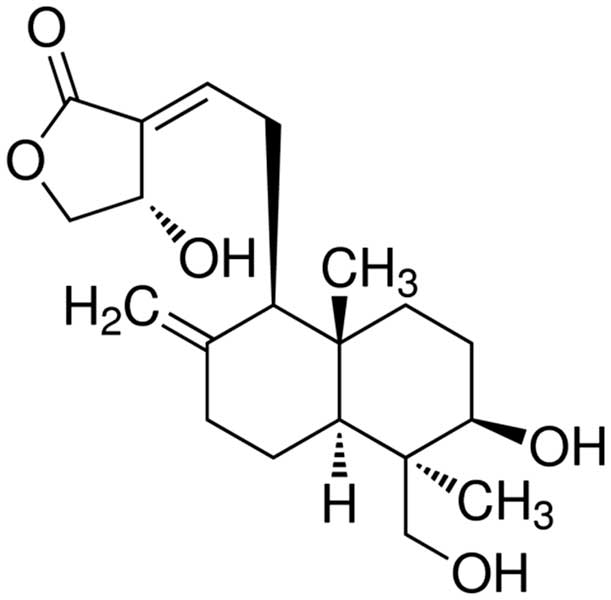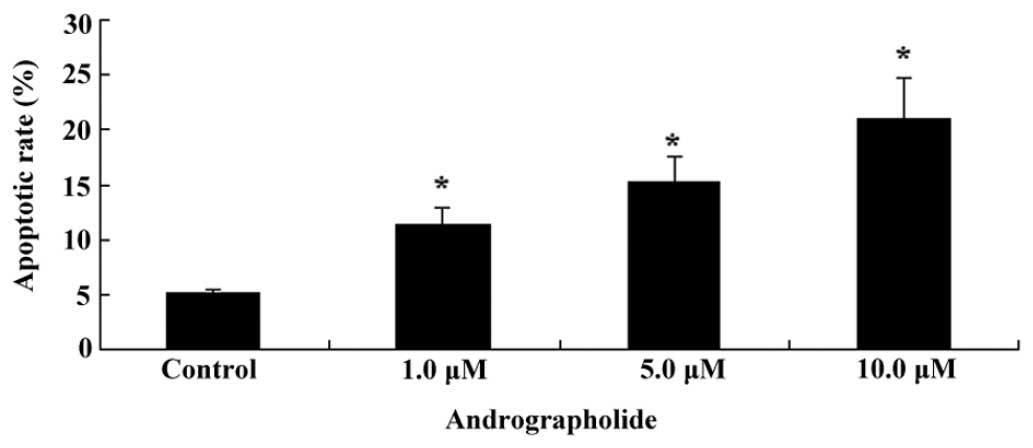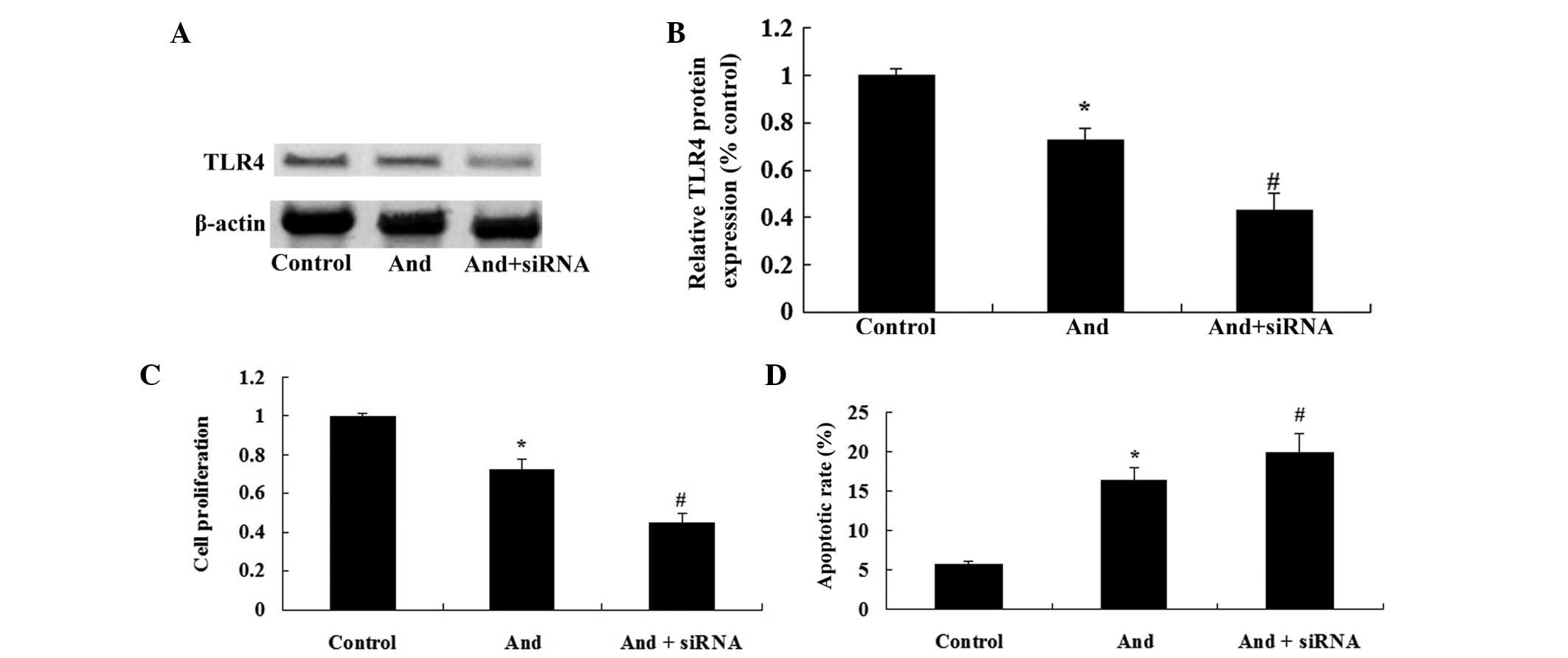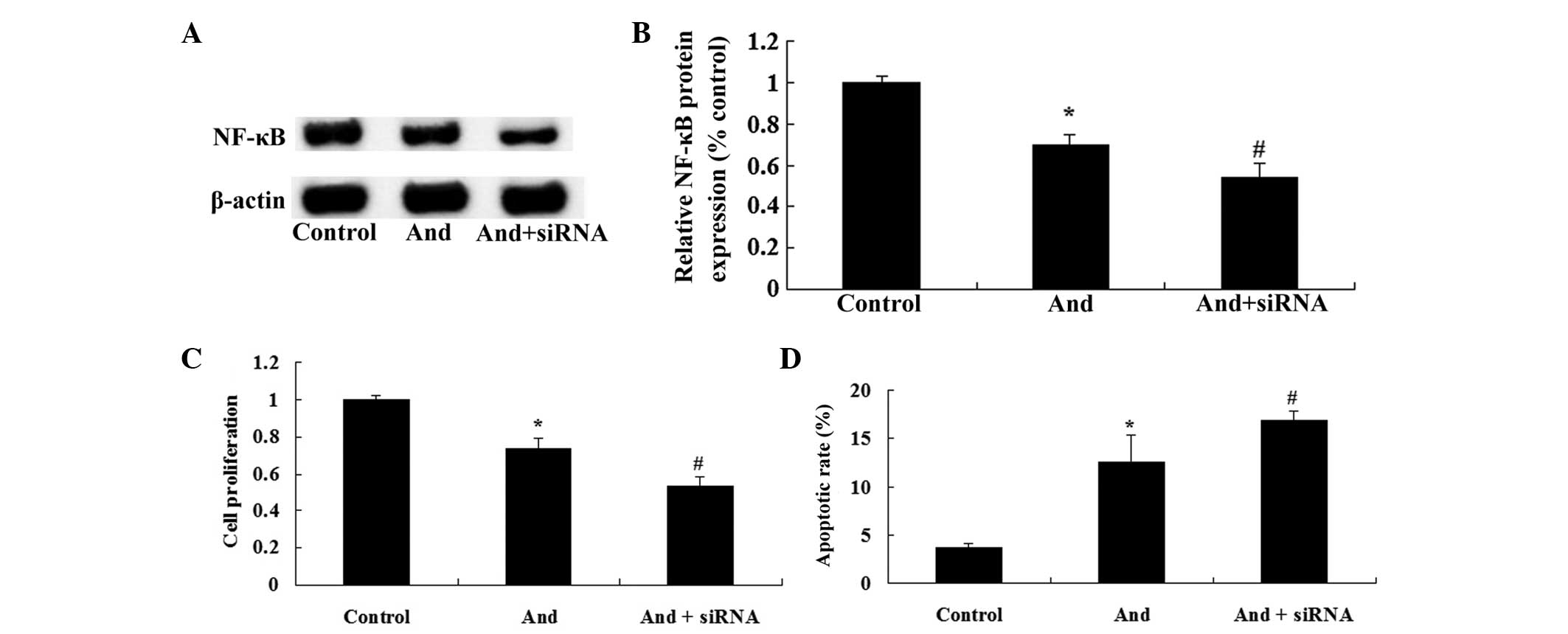|
1
|
Auner HW, Szydlo R, Hoek J, Goldschmidt H,
Stoppa AM, Morgan GJ, Moreau P, Attal M, Marit G, Russell N, et al:
Trends in autologous hematopoietic cell transplantation for
multiple myeloma in Europe: increased use and improved outcomes in
elderly patients in recent years. Bone Marrow Transplant.
50:209–215. 2015. View Article : Google Scholar
|
|
2
|
Peng J, Chen Y, Lin J, Zhuang Q, Xu W,
Hong Z and Sferra TJ: Patrinia scabiosaefolia extract suppresses
proliferation and promotes apoptosis by inhibiting the STAT3
pathway in human multiple myeloma cells. Mol Med Rep. 4:313–318.
2011.PubMed/NCBI
|
|
3
|
Li H, Xu H and Sun B: Lipopolysaccharide
regulates MMP-9 expression through TLR4/NF-κB signaling in human
arterial smooth muscle cells. Mol Med Rep. 6:774–778.
2012.PubMed/NCBI
|
|
4
|
Wang AC, Ma YB, Wu FX, Ma ZF, Liu NF, Gao
R, Gao YS and Sheng XG: TLR4 induces tumor growth and inhibits
paclitaxel activity in MyD88-positive human ovarian carcinoma in
vitro. Oncol Lett. 7:871–877. 2014.PubMed/NCBI
|
|
5
|
Murray MY, Zaitseva L, Auger MJ, Craig JI,
MacEwan DJ, Rushworth SA and Bowles KM: Ibrutinib inhibits
BTK-driven NF-κB p65 activity to overcome bortezomib-resistance in
multiple myeloma. Cell Cycle. 14:2367–2375. 2015. View Article : Google Scholar
|
|
6
|
Dou A, Wang Z, Zhao J, Liu J and Zheng C:
Identification of therapeutic target genes with DNA microarray in
multiple myeloma cell line treated by IKKβ/NF-κB inhibitor. Acta
Cir Bras. 29:696–702. 2014. View Article : Google Scholar : PubMed/NCBI
|
|
7
|
Serrano FG, Tapia-Rojas C, Carvajal FJ,
Hancke J, Cerpa W and Inestrosa NC: Andrographolide reduces
cognitive impairment in young and mature AβPPswe/PS-1 mice. Mol
Neurodegener. 9:612014. View Article : Google Scholar
|
|
8
|
Chua LS: Review on liver inflammation and
antiinflammatory activity of Andrographis paniculata for
hepatoprotection. Phytother Res. 28:1589–1598. 2014. View Article : Google Scholar : PubMed/NCBI
|
|
9
|
Yang D, Zhang W, Song L and Guo F:
Andrographolide protects against cigarette smoke-induced lung
inflammation through activation of heme oxygenase-1. J Biochem Mol
Toxicol. 27:259–265. 2013. View Article : Google Scholar : PubMed/NCBI
|
|
10
|
Zeng X, Liu X, Bian J, Pei G, Dai H,
Polyak SW, Song F, Ma L, Wang Y and Zhang L: Synergistic effect of
14-alpha-lipoyl andrographolide and various antibiotics on the
formation of biofilms and production of exopolysaccharide and
pyocyanin by Pseudomonas aeruginosa. Antimicrob Agents Chemother.
55:3015–3017. 2011. View Article : Google Scholar : PubMed/NCBI
|
|
11
|
Lee JC, Tseng CK, Young KC, Sun HY, Wang
SW, Chen WC, Lin CK and Wu YH: Andrographolide exerts
anti-hepatitis C virus activity by upregulating haeme oxygenase-1
via the p38 MAPK/Nrf2 pathway in human hepatoma cells. Br J
Pharmacol. 171:237–252. 2014. View Article : Google Scholar :
|
|
12
|
Lee C, Oh JI, Park J, Choi JH, Bae EK, Lee
HJ, Jung WJ, Lee DS, Ahn KS and Yoon SS: TNF α mediated IL-6
secretion is regulated by JAK/STAT pathway but not by MEK
phosphorylation and AKT phosphorylation in U266 multiple myeloma
cells. Biomed Res Int. 2013:5801352013. View Article : Google Scholar
|
|
13
|
Luo W, Liu Y, Zhang J, Luo X, Lin C and
Guo J: Andrographolide inhibits the activation of NF-κB and MMP-9
activity in H3255 lung cancer cells. Exp Ther Med. 6:743–746.
2013.PubMed/NCBI
|
|
14
|
Yang M, Huang J, Ma QL, Xu GX and Jin J:
Antitumor activity of CDA-, a urinary preparation, on human
multiple myeloma cell lines via the mitochondrial pathway. Mol Med
Rep. 9:1025–1031. 2014.PubMed/NCBI
|
|
15
|
Corso A, Mangiacavalli S, Barbarano L,
Montalbetti L, Mazzone A, Fava S, Varettoni M, Zappasodi P, Morra E
and Lazzarino M: Low efficacy of thalidomide in improving response
after induction in multiple myeloma patients who are candidates for
high-dose therapy. Leuk Res. 32:1085–1090. 2008. View Article : Google Scholar
|
|
16
|
Yang SH, Wang SM, Syu JP, Chen Y, Wang SD,
Peng YS, Kuo MF and Kung HN: Andrographolide induces apoptosis of
C6 glioma cells via the ERK-p53-caspase 7-PARP pathway. Biomed Res
Int. 2014:3128472014.PubMed/NCBI
|
|
17
|
Shen K, Ji L, Lu B, Xu C, Gong C, Morahan
G and Wang Z: Andrographolide inhibits tumor angiogenesis via
blocking VEGFA/VEGFR2-MAPKs signaling cascade. Chem Biol Interact.
218:99–106. 2014. View Article : Google Scholar : PubMed/NCBI
|
|
18
|
Wang Y, He H, Li D, Zhu W, Duan K, Le Y,
Liao Y and Ou Y: The role of the TLR4 signaling pathway in
cognitive deficits following surgery in aged rats. Mol Med Rep.
7:1137–1142. 2013.PubMed/NCBI
|
|
19
|
Bao H, Lu P, Li Y, Wang L, Li H, He D,
Yang Y, Zhao Y, Yang L, Wang M, et al: Triggering of toll-like
receptor-4 in human multiple myeloma cells promotes proliferation
and alters cell responses to immune and chemotherapy drug attack.
Cancer Biol Ther. 11:58–67. 2011. View Article : Google Scholar : PubMed/NCBI
|
|
20
|
Wang AC, Su QB, Wu FX, Zhang XL and Liu
PS: Role of TLR4 for paclitaxel chemotherapy in human epithelial
ovarian cancer cells. Eur J Clin Invest. 39:157–164. 2009.
View Article : Google Scholar : PubMed/NCBI
|
|
21
|
Huang JM, Zhang GN, Shi Y, Zha X, Zhu Y,
Wang MM, Lin Q, Wang W, Lu HY, Ma SQ, Cheng J and Deng BF:
Atractylenolide-I sensitizes human ovarian cancer cells to
paclitaxel by blocking activation of TLR4/MyD88-dependent pathway.
Sci Rep. 4:38402014.PubMed/NCBI
|
|
22
|
Klink M, Nowak M, Kielbik M, Bednarska K,
Blus E, Szpakowski M, Szyllo K and Sulowska Z: The interaction of
HspA1A with TLR2 and TLR4 in the response of neutrophils induced by
ovarian cancer cells in vitro. Cell Stress Chaperones. 17:661–674.
2012. View Article : Google Scholar : PubMed/NCBI
|
|
23
|
Zhang QQ, Zhou DL, Ding Y, Liu HY, Lei Y,
Fang HY, Gu QL, He XD, Qi CL, Yang Y, et al: Andrographolide
inhibits melanoma tumor growth by inactivating the TLR4/NF-κB
signaling pathway. Melanoma Res. 24:545–555. 2014. View Article : Google Scholar : PubMed/NCBI
|
|
24
|
Zhang QQ, Ding Y, Lei Y, Qi CL, He XD, Lan
T, Li JC, Gong P, Yang X, Geng JG and Wang LJ: Andrographolide
suppress tumor growth by inhibiting TLR4/NF-κB signaling activation
in insulinoma. Int J Biol Sci. 10:404–414. 2014. View Article : Google Scholar
|
|
25
|
Suzuki E, Daniels TR, Helguera G, Penichet
ML, Umezawa K and Bonavida B: Inhibition of NF-kappaB and Akt
pathways by an antibody-avidin fusion protein sensitizes malignant
B-cells to cisplatin-induced apoptosis. Int J Oncol. 36:1299–1307.
2010.PubMed/NCBI
|
|
26
|
Calabrese C, Berman SH, Babish JG, Ma X,
Shinto L, Dorr M, Wells K, Wenner CA and Standish LJ: A phase I
trial of andrographolide in HIV positive patients and normal
volunteers. Phytother Res. 14:333–338. 2000. View Article : Google Scholar : PubMed/NCBI
|
|
27
|
Manni S, Brancalion A, Mandato E, Tubi LQ,
Colpo A, Pizzi M, Cappellesso R, Zaffino F, Di Maggio SA, Cabrelle
A, et al: Protein kinase CK2 inhibition down modulates the NF-κB
and STAT3 survival pathways, enhances the cellular proteotoxic
stress and synergistically boosts the cytotoxic effect of
bortezomib on multiple myeloma and mantle cell lymphoma cells. PLoS
One. 8:e752802013. View Article : Google Scholar
|
|
28
|
Siveen KS, Mustafa N, Li F, Kannaiyan R,
Ahn KS, Kumar AP, Chng WJ and Sethi G: Thymoquinone overcomes
chemoresistance and enhances the anticancer effects of bortezomib
through abrogation of NF-κB regulated gene products in multiple
myeloma xenograft mouse model. Oncotarget. 5:634–648. 2014.
View Article : Google Scholar : PubMed/NCBI
|
|
29
|
Wang LJ, Zhou X, Wang W, Tang F, Qi CL,
Yang X, Wu S, Lin YQ, Wang JT and Geng JG: Andrographolide inhibits
oral squamous cell carcinogenesis through NF-κB inactivation. J
Dent Res. 90:1246–1252. 2011. View Article : Google Scholar : PubMed/NCBI
|























